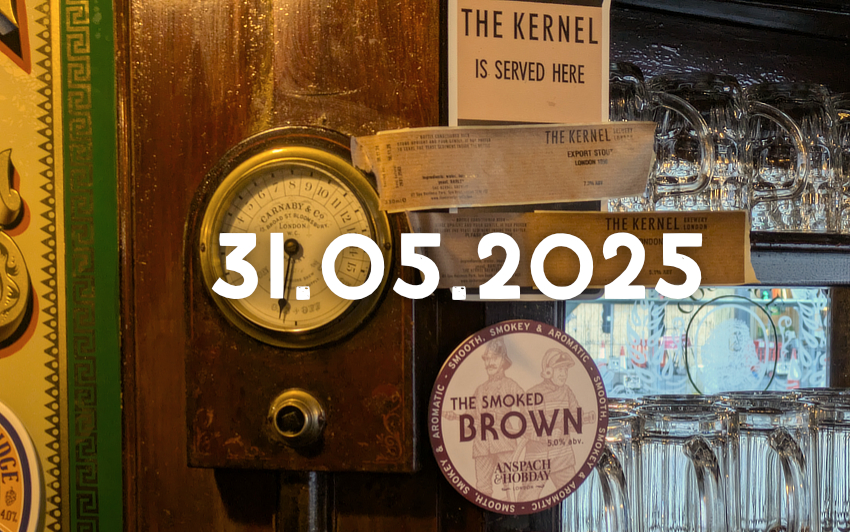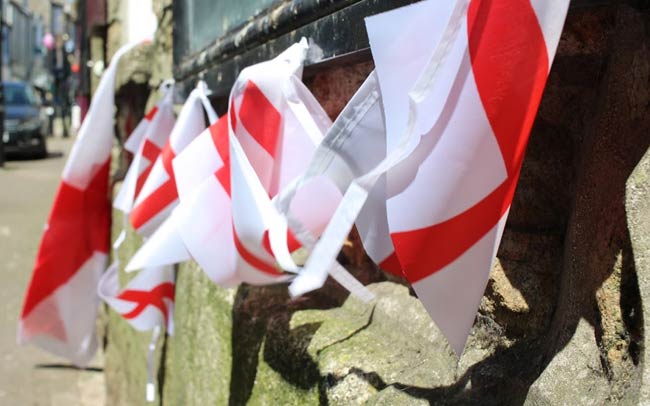
Every Saturday we round up the best writing about beer from the past week. This time, we’ve got California common, mild madness, and ‘banal nationalism’.
First, a BrewDog update – something we’ve not had in a while, it seems. The brewery announced a rebrand of its core range this week, promising a ‘revolution’. It’s interesting that the place we heard about this was via the business networking platform LinkedIn where people were not impressed.
And the change also got people talking about the health of the business: “But here’s the thing about Brewdog… They lose money… They aren’t in organic growth (especially in the UK)… They have a credit loan note that is eating up all equity in the business… And most importantly…they desperately need an IPO or acquisition…”

We’re a bit late sharing this next piece which was published in early May. Honestly, we bookmarked it on a phone, and then the bookmarks didn’t sync with the computer, so we forgot to include it when we did the write up… Anyway, it’s a very chunky academic paper by Robert Deakin and Thomas Thurnell-Read called ‘The Last of England: Banal Nationalism and Communities of Loss in British Pub Closure Media Narratives’:
Recent sociological writing has highlighted the persistence of the cultural mythology of pubs (Markham 2024) and concerned the contemporary representation of the pub as a site of ‘idyllic English sociability’ and ‘working class authenticity’ under threat (Singh et al. 2024). Amid a wave of English nationalism, most obviously evidenced by the ‘Brexit’ vote (Calhoun 2017; Dodd et al. 2017), declinist representations of the pub are central to dominant and racially exclusionary imaginations of the nation. Indeed, there is statistical evidence that the loss of pubs is a material factor in support for far-right political parties (Bolet 2021). Contemporary representations of the pub as a site of white, working-class nationhood sit alongside and draw upon longer imagined associations between the pub and the nation in which the rural village origins of the ‘traditional English pub’ are emphasised (Kingsnorth 2008; Markham 2014).
It will keep you busy for a while and should, by rights, spawn a hundred blog posts.

At Craft Beer & Brewing Jeff Alworth asks a great question that we might apply more widely: “[Is] California common… a style with a range of expressions, or more like a tribute band where every version is, to some degree, an homage to Anchor [Steam]”?
Firestone Walker’s Sam Tierney puts it best: “It’s a style that went through a very tight evolutionary bottleneck, and basically nobody has been able to popularize any significant deviations from Anchor, as far as I know. We brewed one this year, and it wasn’t a clone but was pretty close.”
See also ESB, maybe?

If you want an overview of the state of cask mild in 2025 check out Phil Edwards’s detailed round-up of all the milds he drank in and around Manchester in the past month:
Overall it’s a mixed picture. Superficially, the fact that there are large numbers of brewers selling beers clearly badged as mild makes a pleasant contrast with the picture from a few years back, when established brewers were busily renaming their milds (remember “Old Indie”?) or else dropping them altogether. But the fact that independent brewers are embracing mild as a speciality style – in some cases with Mild Magic itself in mind – isn’t actually in contradiction with the decline in mild as a volume beer. It’s striking that very few of the particularly good milds I’ve had this year have been ‘pintable’… The way the RedWillow dark mild came to life in one particular venue – when (I’m guessing) the barrel was new on – also tells a story.

Martyn Cornell has been trying to kill one particular myth for 20 years: that the porter beer style was named after market porters. Having seen the myth repeated once again by Guinness, he’s repeated his rebuttal in the firmest terms:
[The] porters after whom porter is named were not the small number who worked in the capital’s produce markets, but the thousands more who earned a living as what were known as fellowship porters and ticket porters (so called because they wore a pewter “ticket”, or badge), loading and unloading ships on the Thames and carrying parcels, letters and goods around London’s streets… The trouble has been that the fellowship porters and ticket porters, and all the other sub-divisions of porterdom, including deal porters, stave porters and tackle porters, disappeared in the late 19th century. The Society of Tacklehouse and Ticket Porters looks to have held its last meeting in 1871. The Fellowship of Free Porters of the City of London was dissolved by Act of Parliament in 1894.

There’s something different from Chris Dyson at Real Ale, Real Music this week. Back in 2021, when he retired, he started doing some part-time bar work, which has helped him understand the challenges of running and working in pubs:
Talking to people, listening, wisdom coming from sometimes unexpected sources across both sides of the bar. I have become much more tolerant and understanding and realised that the way to look after the customer is exactly how you would like to be treated yourself…. I am generally more understanding when I go elsewhere and see how the staff are working, but also more critical as well – why are they doing that?, what’s the problem with that? etc. We wouldn’t do that, you think. Why aren’t they looking to see if there are any customers waiting? Why are they selling that? But you also pick up ideas, see what the other guys are doing, and sometimes you are really impressed by how it’s all being run.
Finally, from BlueSky…
‘Creepiest pub sign 2025’ competition is now closed
— Will Hawkes (@willhawkes.bsky.social) May 27, 2025 at 3:31 PM
For more good reading check out Stan Hieronymus’s round-up from Monday and Alan McLeod’s from Thursday.







